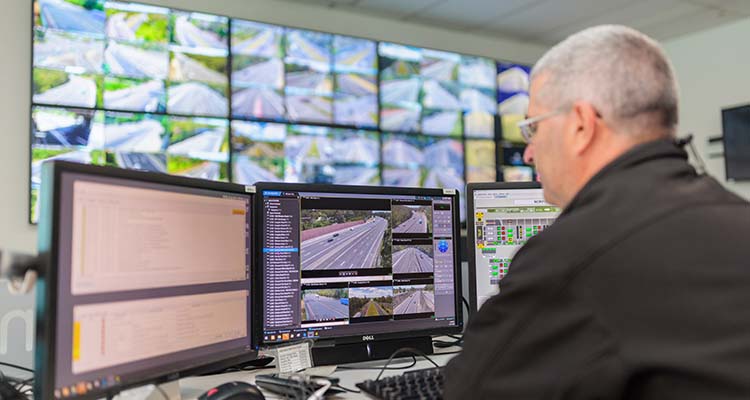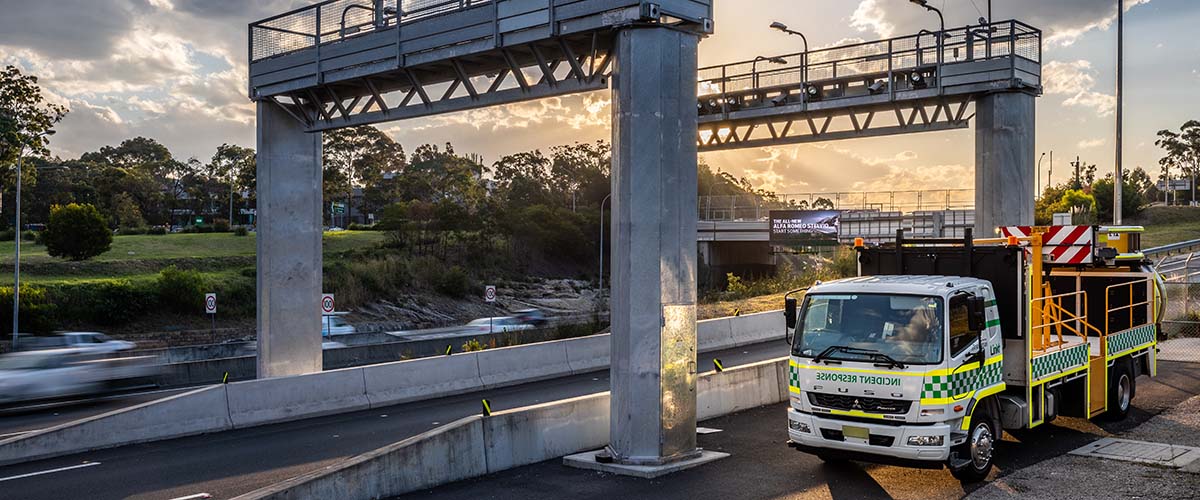On any given day, around the globe, about 49.6 million people are being forced into labour and other types of modern slavery. This includes an estimated 41,000 people in Australia. This means people in slavery situations could be travelling on our roads.
Modern slavery comes in many forms, including human trafficking, slavery, forced labour, debt bondage, forced marriage and other illegal practices where individuals are exploited for others’ personal or commercial gain. All forms of modern slavery are exploitative and injurious human rights’ abuses.
Our roads are equipped with thousands of CCTV cameras – and we also help around 1,000 people a day through our incident response service. And what we see on our roads could potentially help people who are trapped in any form of modern slavery.

On WestConnex, in Sydney, we delivered training to traffic control room, incident response, and operations and maintenance teams so our people (and in some cases, our contractors’ people) have the skills needed to identify possible instances of modern slavery on our roads.
Incident response teams are on the ground, supporting community members whenever a vehicle breaks down or loses a load, during medical emergencies and, of course, when there’s a crash. Knowing what signs to look out for could make a life-changing difference for someone who is unable, due to their situation, to ask for help themselves.
Modern slavery risks can exist in almost any industry. In the US, trucking has modern slavery risks because trucks are often owner-operated. Drivers may take out a loan (legitimate or illegitimate) to buy a truck, potentially leaving them vulnerable to exploitative financial arrangements stemming from their debt. When we ran training sessions for US traffic control room officers, we included training on the trucking industry help our officers spot potential indicators while monitoring our express lanes in the Greater Washington Area (Virginia). This training was delivered with expert input from an international modern slavery NGO.
Across our overall operations, we have multiple measures in place to help us spot and manage slavery risks in our supply chain. Our contract management and procurement controls are informed by our ongoing review of international modern slavery monitoring. And we deliver mandatory modern slavery awareness training for all our personnel (completed by 98% of personnel in 2023), collaborating with our suppliers in monitoring their supply chains, providing multilingual whistleblower services, and sharing learnings with others in our industry.
Our Australian and North American employees are trained on many environmental, social and governance (ESG) topics beyond modern slavery. These include: sexual harassment; equal opportunity and anti-discrimination; and ethical business practices. The overall completion rate for all training in the 2023 financial year was 97%.
Learn more about our efforts in our 2023 Modern Slavery Statement – our fourth statement produced to date.
If you are concerned about a potential instance of moder n slavery please contact:
- Transurban’s Fair Call independent whistleblowing service: 1800 500 965 (Australia); 1866 807 4210 (United States); or 1888 450 5824 (Canada).
- the Australian Federal Police; the US Department of State; or the Canada Human Trafficking Hotline.

